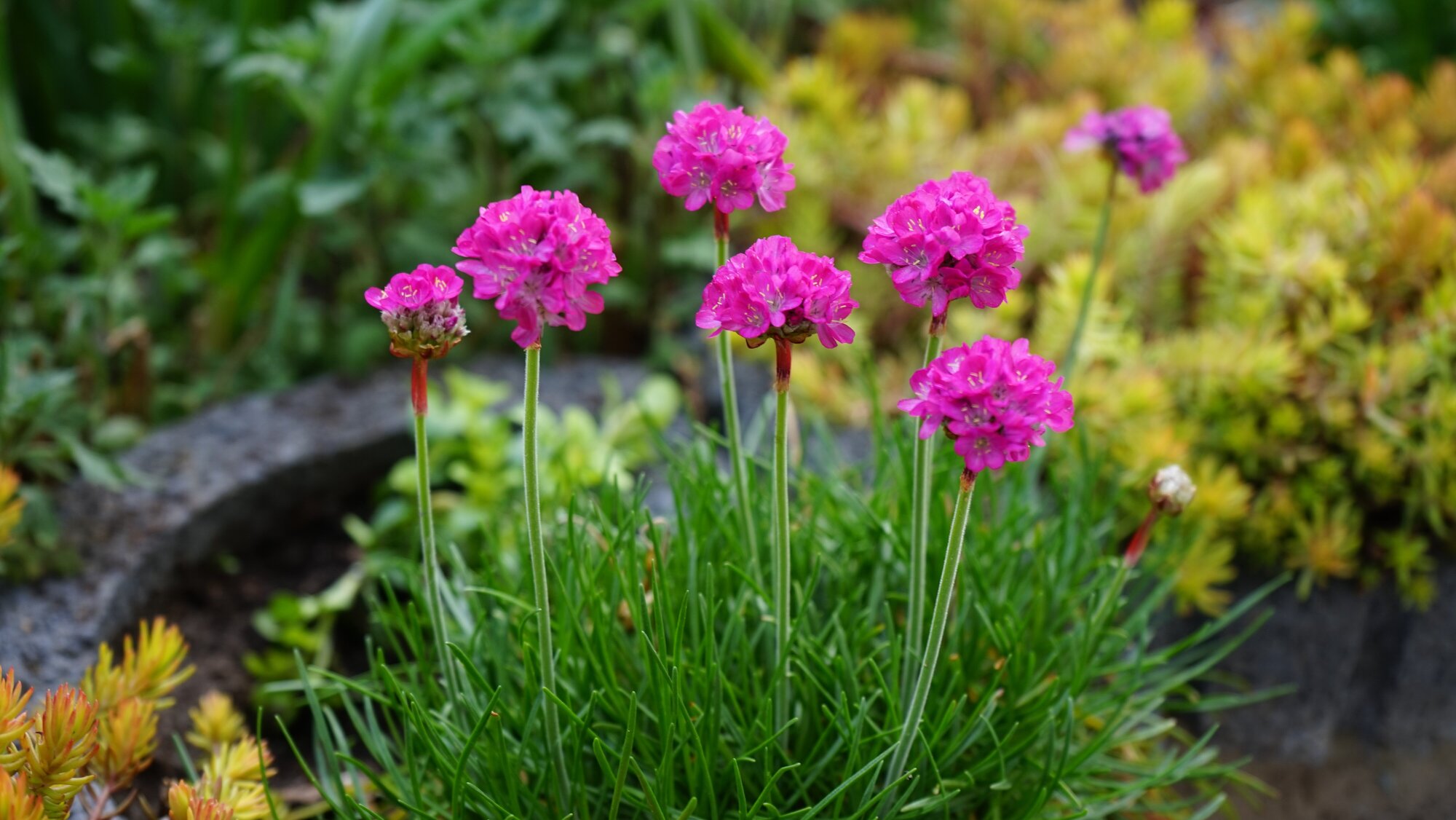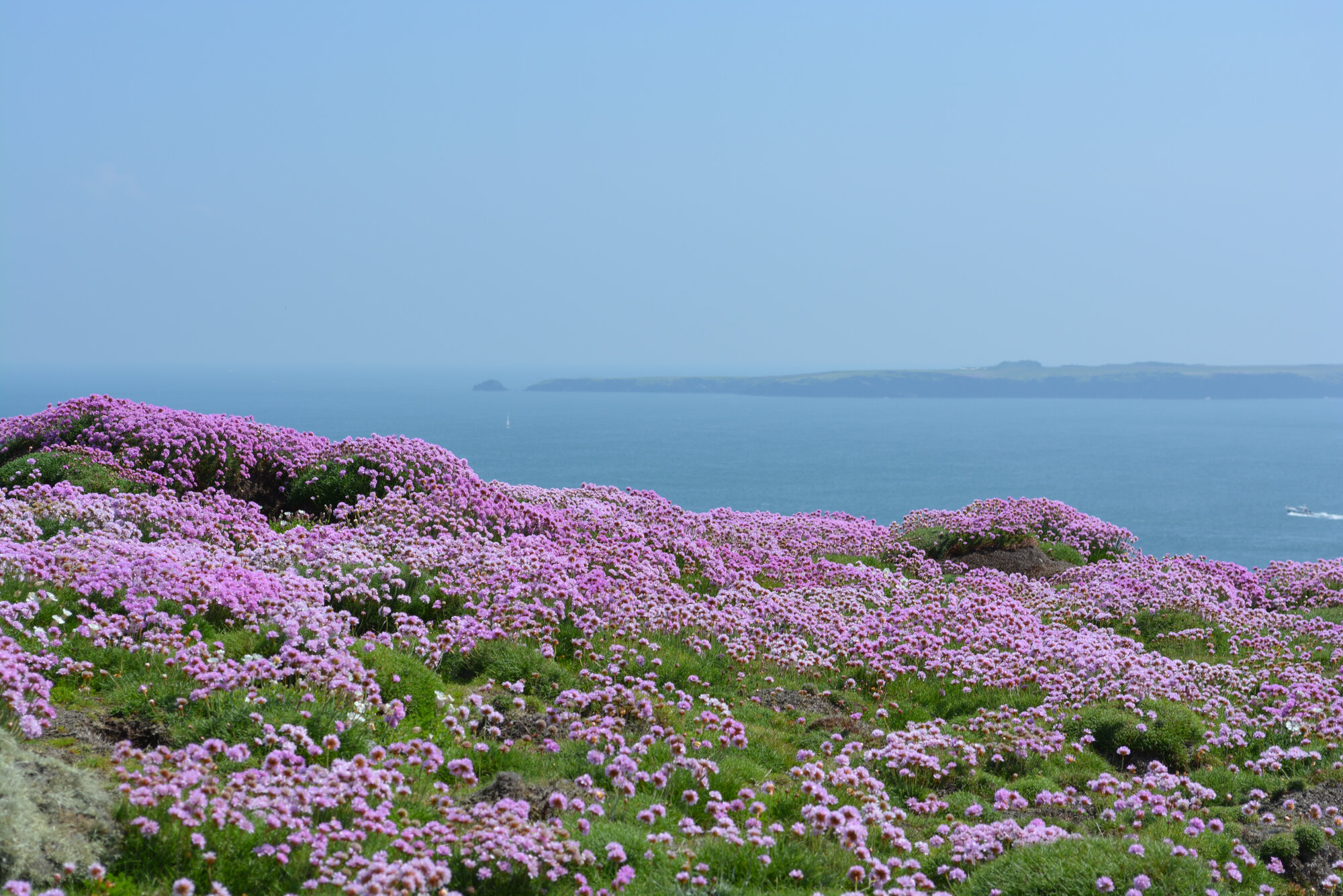The sea thrift - flower of the year 2024

Neither grass nor carnation
The grass carnation (Armeria maritima) is a perennial, herbaceous and deciduous plant. Contrary to what its name suggests, it is neither a grass nor a carnation, but belongs to the leadwort family. It grows up to 50 cm tall and often grows like a cushion. Its narrow, pointed leaves are very reminiscent of grasses in appearance and their slight hairiness is intended to serve as protection against evaporation.
Due to its extremely long flowering period from May to October, the grass carnation with its spherical inflorescences is an important source of food for insects. In winter, it can even withstand temperatures of more than -20 °C. In the past, the flower was used as a remedy for epilepsy due to its content of highly irritating plumbagin. Today, however, it is often used as an ornamental plant in gardens.

A real all-rounder
This undemanding flower is a real all-rounder, as it not only tolerates poor or salty soils and drought, but also soils contaminated with heavy metals, where it can reach toxic concentrations of up to 0.7 % zinc and 0.15 % lead. It can excrete salt absorbed from the soil via special glands on the leaf surface.
Widespread and yet endangered
As the name beach carnation suggests, it is typically found in salt marshes on the seashore and on dunes. But it can also be found in dry forests, sandy and silicate dry grasslands. It is widespread throughout the northern and southern hemisphere and even in parts of Antarctica and Greenland. In Germany, it can be found on the North and Baltic Sea coasts as well as inland in north-eastern Germany, but its populations are nevertheless declining, which is why it is considered endangered nationwide and is on the Red List of Threatened Plants.
The grass carnation is a plant with weak competition and suffers, among other things, from overly intensive agriculture and maintenance of forest edges as well as excessive nitrogen inputs. In conurbations and cities with large areas of sealed surfaces, heat and heavy rainfall can also pose a threat to the grass carnation. To protect native wild plants and preserve flower-rich nutrient-poor grasslands and salt marshes, the grass carnation was therefore chosen as the 45th Flower of the Year this year.
The Loki Schmidt Foundation is the Hamburg Foundation for Nature Conservation and the Foundation for the Protection of Endangered Plants with the aim of promoting the protection of nature, landscape and environmental education. The Flower of the Year campaign was launched in 1980 by Loki Schmidt (wife of former German Chancellor Helmut Schmidt, who died in 2010). With this campaign, she wanted to draw attention to wild plants threatened with extinction.

